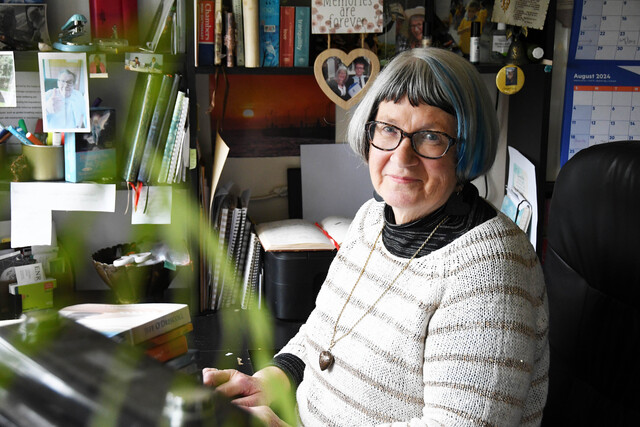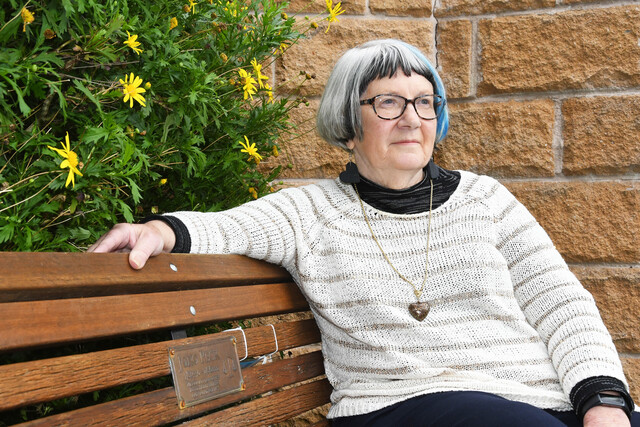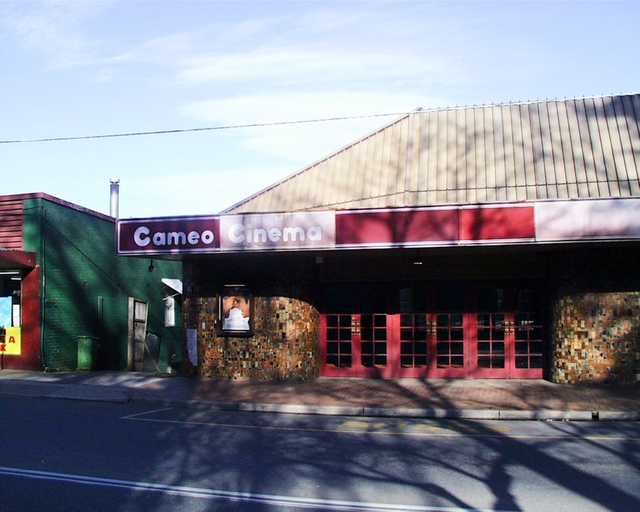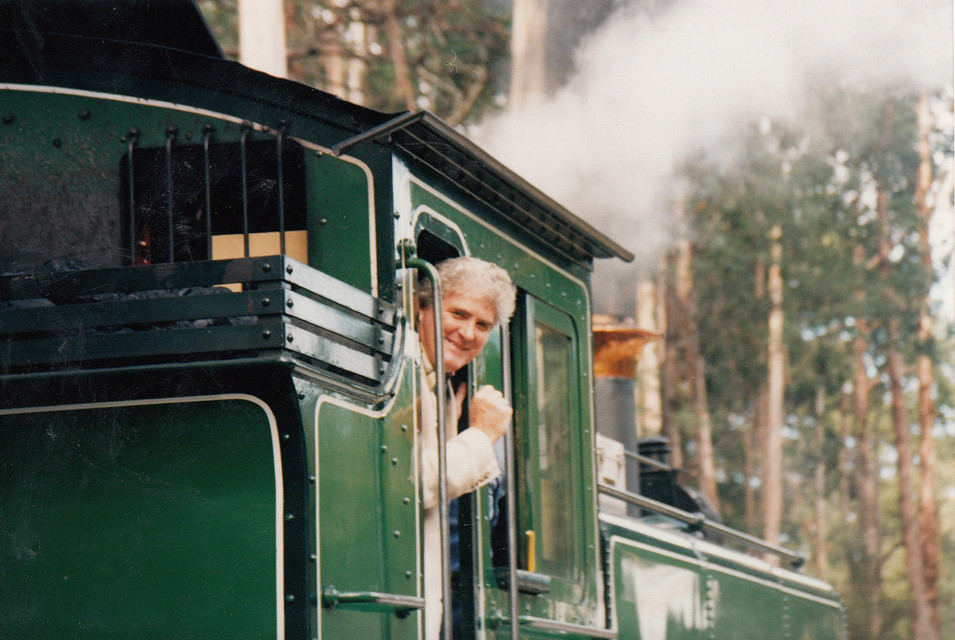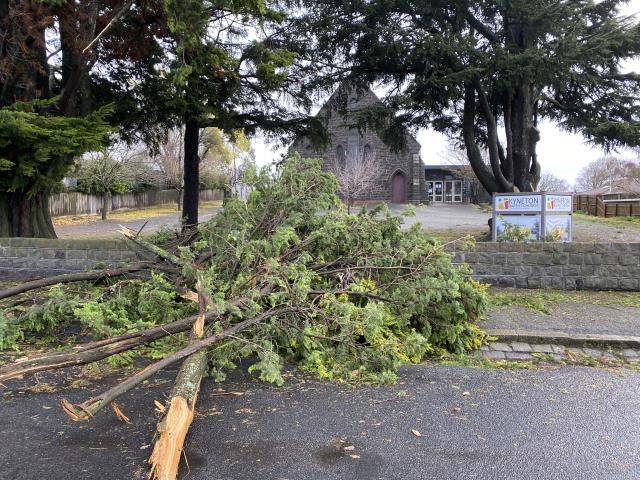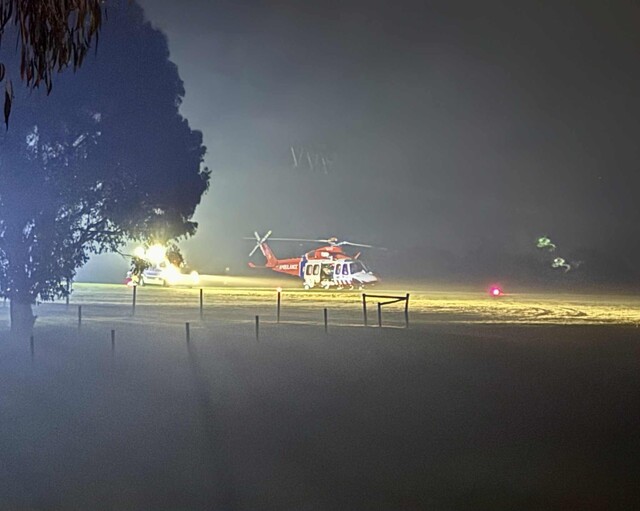Trigger Warning: Suicide
The following content discusses topics related to suicide and may be distressing for some readers. Please proceed with caution and seek support if needed.
Upper Ferntree Gully resident Christine Pedley will launch her book “Facing the Unfathomable… surviving your son’s suicide” on World Suicide Prevention Day on Tuesday 10 September.
In her book she has talked openly about her experiences and will be joined by the Grief Australia chief executive officer Christopher Hall at her launch.
“Do you want to know about the book? Or do you want to know about the 3,000 suicides that happen in Australia every year?” said Ms Pedley.
Ms Pedley’s son Jono died by suicide in June 2022 and she said his death flew in the face of anything she had known about the topic.
“My world changed beyond anything,” she said.
Both a long-time wedding and funeral celebrant and death doula Ms Pedley was no stranger to death and grief.
“All the professional stuff just totally went out of the window,” she said.
“We (the family) were left not knowing anything about why he suicided, as were a lot of his friends.”
With a background in psychology and nearly 30 years in his role at Grief Australia, Mr Hall said that the Australian approach to grieving is not something that we are skilled in at all.
“Our culture sees grief sort of like the flu,” he said.
Most workplace policies give a person three days leave for the death of a family member.
“That’s a very strong message,” Mr Hall said.
“People are fundamentally changed by profound experiences of loss, and so often when they’re wanting social support, people have moved on.”
Ms Pedley said with her book she wants to raise awareness, share her story and take on the way people approach the often taboo subject.
“In days past, to commit suicide was to commit a crime,” she said.
Her son, Jono Peck was a successful junior lawyer, had just bought his own house and was five days away from his 32nd birthday when he died.
“He was the kind of person that brought everyone together,” said Ms Pedley.
In the nights leading up to her son’s death Ms Pedley said he was a bit withdrawn and had been worried about work.
“He rang me to say – you probably picked up Mum, I’m not doing so well,” she said.
Ms Pedley said Jono called her again after a few days to say that he was managing at work and that he was ok.
Visiting family in New Zealand at the time, she had been staying in touch with Jono via phone calls and text messages and said she didn’t hear from him on Wednesday.
“On Thursday I got a call from my ex-husband,” she said.
“He said ‘I’m sorry our son’s no longer on this earth’,” she said.
“I couldn’t get my head around the fact that he’d died, let alone that he’d died by suicide – everyone was just in disbelief.”
Ms Pedley said that after Jono died her family came together and in the days after Jono’s death family would gather together and look at each other, and then one by one would just join in a large circle with their arms around each other and just cry.
“I called it the padlock of love,” she said.
As a society Mr Hall said he thinks that we’ve moved away from the idea that grieving is about saying goodbye or letting go.
“We can see in Christine’s book how both family and friends have been powerfully affirming and helpful,” he said.
The family held a large memorial service for Jono and Ms Pedley said she felt herself questioning the process around grief and the way funerals honour their loved ones.
“They (Jono’s friends and colleagues) were just as distraught as we were – why do we make the family the principal mourners when all these people are in so much loss themselves and so much pain?” she said.
Mr Hall said in matters of grief as a society, we’ve still got a long way to go.
“These conversations evoke anxiety in people – we often use some other word that attempts to soften the reality of the death, he said.
“People want to bring solutions, they want to find a way of relieving the person of this pain and suffering, which we cannot do.”
“All that we can do is to accompany people, to give them the opportunity to put into words, to put out into the world their experience.”
Ms Pedley said before Jono she thought she understood suicide bereavement.
“People tend to put suicides together,” she said.
“But each suicide is so uniquely different It is as unique as each person’s grief story.”
When talking to people about grief Ms Pedley said her golden rule is just to be a compassionate listener.
“You can’t go wrong,” she said.
Mr Hall said he would argue that most of the problems that grieving people have are social ones.
“It’s not that people are disinterested or not compassionate, but they just don’t know how to respond,” he said.
“It reminds us all that we are all going to die, that the people we love are going to die and that we don’t have an unending supply of tomorrows.”
When talking about or referring to a person who has died by suicide Ms Pedley said that people don’t understand how judgmental that it is.
“We’re a death-denying society still,” she said.
Mr Hall said Mr Pedley’s book is partly a way of processing digesting or metabolizing the grief experience.
“Not only as people do we need to wrap our heart around what’s happened – like in Christina’s case, the death of her son, but we also need to wrap our head around it, we need to be able to make some sense of it,” he said.
Ms Pedley said that suicide is not the cause of death, it’s what happened.
“I’ve got a table in my book and I would say took his life, killed himself or died by suicide,” she said.
Mr Hall said the book is also a kind of memorial for Jono and that it is brave and courageous of Ms Pedley to share so openly.
“Jono is still somebody who can be loved even in his absence,” he said.
“If people are important to us, it takes much more than the separation of death for that relationship to be relinquished.”
“Jono is more than his death – Jono is more than somebody who died by suicide.”
“He had a sense of humour that was incredible – I often feel it coming through me.” said Ms Pedley.
Part memoir and part educational tool, Ms Pedley hopes her book will be useful not only to other bereaved people and parents but to those supporting them.
Ms Pedley will launch her book on Tuesday 10 September at the Ferntree Gully Bowling Club at 2A Glenfern Road, starting at 7pm.
Please RSVP by 8 September to christine@pedleywrites.com
If you, or someone you know are feeling overwhelmed, we encourage you to connect with Lifeline in the way you feel most comfortable.
You can phone Lifeline to speak to a Crisis Supporter on 13 11 14 (24/7), text 0477 131 114 (24/7) or chat to Lifeline online at www.lifeline.org.au (24/7).

